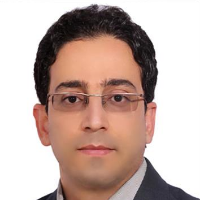Investigating the reflection of cultural components in textbooks (Case study: Book of the second secondary Arabic language course in Iran and Egypt)
The primary task of all educational systems is to prepare the student's mind for the future in the context of culture. For this reason, researchers and thinkers entered the field of education and considered investing in human intellect to activate educational perspectives as one of the most central processes. However, realizing this vision requires understanding the relationship between education and culture, including components of culture in educational curricula and materials, discovering these components, and highlighting them in the teaching process for students. The aim of this article is to highlight the cultural components as the depth of the content of the curriculum of the book "Arabi, Zaban Qur'an (1)" in the tenth grade in the field of humanities in Iran with its counterpart, the Arabic language book "Let's Get Creative" in the tenth grade of secondary school in Egypt, which is evaluated through Quantitative measure of cultural components. The entire content of the two books is a statistical community in this research. At first, the data is presented in the form of tables and graphs, and then it is analyzed descriptively - analytically. The results showed that the Islamic (45%), social (67%) and religious (15%) contexts in Egyptian textbooks and the Islamic fields (54%), religious (84%) and cultural production (70%) are the most common in Iranian textbooks. These are the Islamic and religious aspects that despite They differ in the number of uses together, on top of the cultural components used in the textbooks above.
Education , Culture , Cultural Components , Arabic Book , Iran , Egypt
-
Depictions of Social Actors in Lutfia Al Dulaimi's Novel "Women of Saturn" through Theo van Leeuwen's Critical Discourse Approach
Sepideh Bagheri Ozan, Ali Sayadani *, Parviz Ahmadzadeh Houch,
Journal of Arabic Literatur, -
Evalution of the Reflection of the Semantic Miracle of written form of Quran in Abdolaziz Salimi
Qader Qaderi *, , Mohamad Jahangiri Asl
Quranic Studies and Islamic Culture,


